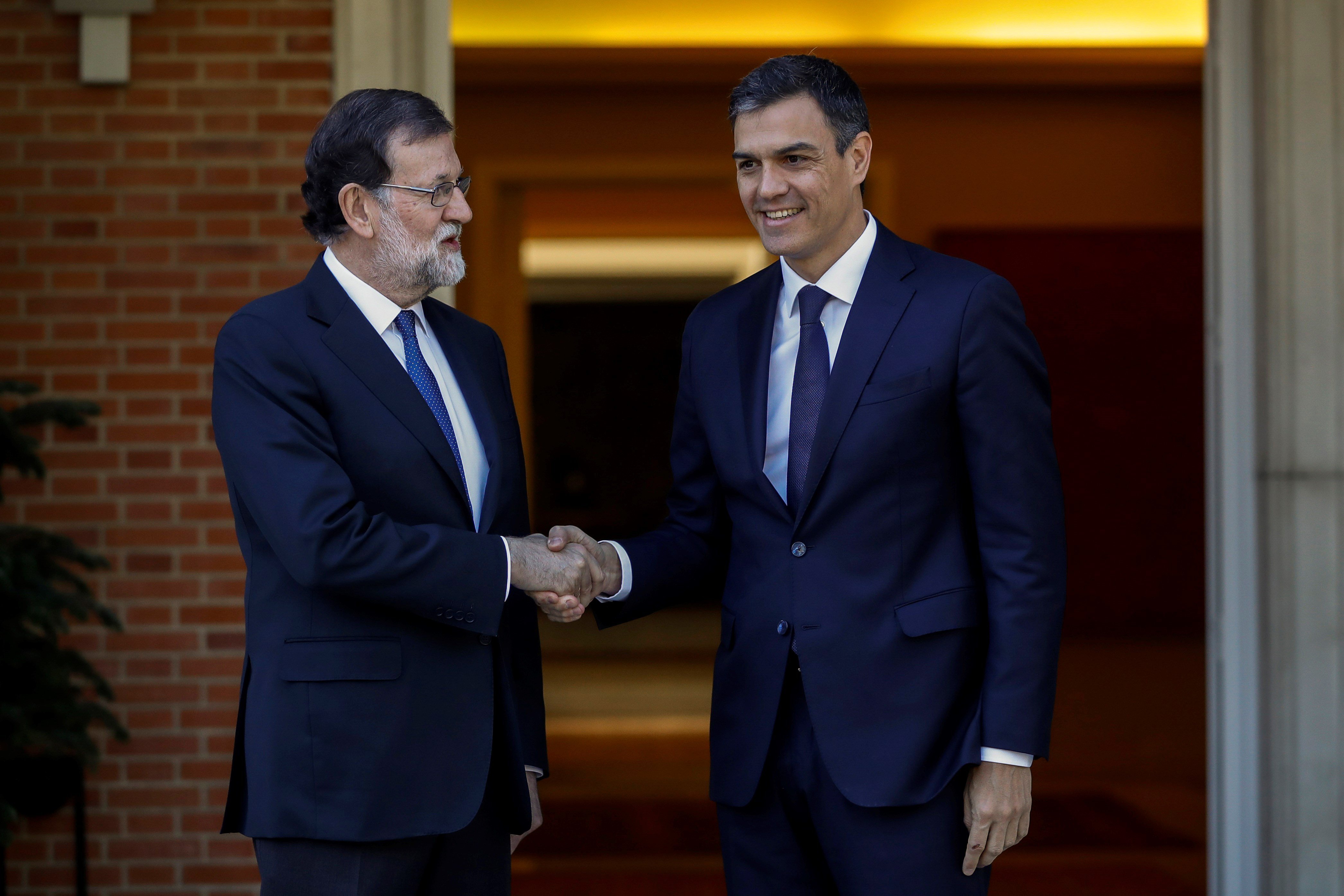The worst predictions are confirmed for Quim Torra's new Catalan government: the Spanish authorities will maintain their direct rule over Catalonia under article 155 of the constitution, and will not publish the nominations of four ministers who are in prison on remand or in exile abroad - effectively amounting to a veto of these ministers. Spain's governing Popular Party (PP) confirmed this decision on Sunday morning.
The decision followed discussions between the major Spanish political parties on Saturday, in response to president Torra's announcement of his new Catalan executive. Spanish prime minister Mariano Rajoy spoke with the leader of the Spanish Socialists (PSOE), Pedro Sánchez, and the head of the Citizens (Cs) party, Albert Rivera, and the three decided to maintain the extraordinary constitutional powers granted under article 155.
El Ejecutivo, con @marianorajoy a la cabeza, entiende que Torra sigue con su pulso al Estado. Por lo tanto, el artículo 155 se mantiene vigente en Cataluña.https://t.co/PVzlknZqm1
— Partido Popular (@PPopular) 20 of May 2018
Translation: The Spanish executive, led by Mariano Rajoy, considers that Torra is continuing with his confrontation with the state. Therefore, article 155 will remain in force in Catalonia. - Popular Party
The decision signifies a refusal to authorize the official publication of the ministerial nominations. This in turn means that the ministers in exile or in prison will not be able to become an effective part of the Catalan executive. Four of the thirteen ministers are affected by the decision of the Spanish government: the ministers for Presidency (Jordi Turull), Territory and Sustainability (Josep Rull), Culture (Lluís Puig) and Health (Toni Comín).
Why can article 155 be maintained?
The refusal of the Spanish government to publish the nomination of the ministers extends the validity of Madrid's direct rule over Catalonia, under article 155 of the Spanish constitution. The Rajoy government could attempt to justify this move based on the decision announced on 27th October last year, when article 155 was imposed, that the direct rule measures would continue until the new Catalan government emerging from last December's election took possession.
For the new Catalan government to take possession and start functioning, the names of members of the government have to be published in the Catalan government's official gazette - and at present it is Rajoy who controls this publication. In this way, the Spanish prime minister has obtained a veto power over the appointments.
The PSOE's change of course
The key element in understanding this measure is the common front of these three Spanish political parties - given that the PP's Spanish adminstration is a minority government - and especially the support of the PSOE, which had already offered its support to Rajoy to veto the nomination of the new Government.
In the last few days, the socialists have committed themselves to a harder line on Catalonia, close to that followed by the PP and Cs. This has been evident from proposals made by the PSOE leadership this last week, including a reform of the Spain's criminal code to adapt, after the fact, the legal definition of rebellion to the actions actually taken by the independence movement, as well as a plan to make obedience to the constitution compulsory.
A "confrontation with the state"
The secretary general of the Catalan branch of the PP, Santi Rodríguez, confirmed to Catalan radio station RAC1 that the Spanish government would not end the imposition of 155 following the decision of the new Catalan government, headed by president Quim Torra, to reinstate sacked ministers who are currently jailed or in exile.
"155 will remain in force until there is a Catalan government whose only objective is to govern Catalonia and govern for all Catalans", said Rodríguez, blaming the pro-independence forces for having caused the extension of 155: "When ministers are nominated who are in prison on remand or have fled justice, the real will is not to form a government but to maintain a confrontation with the state".

